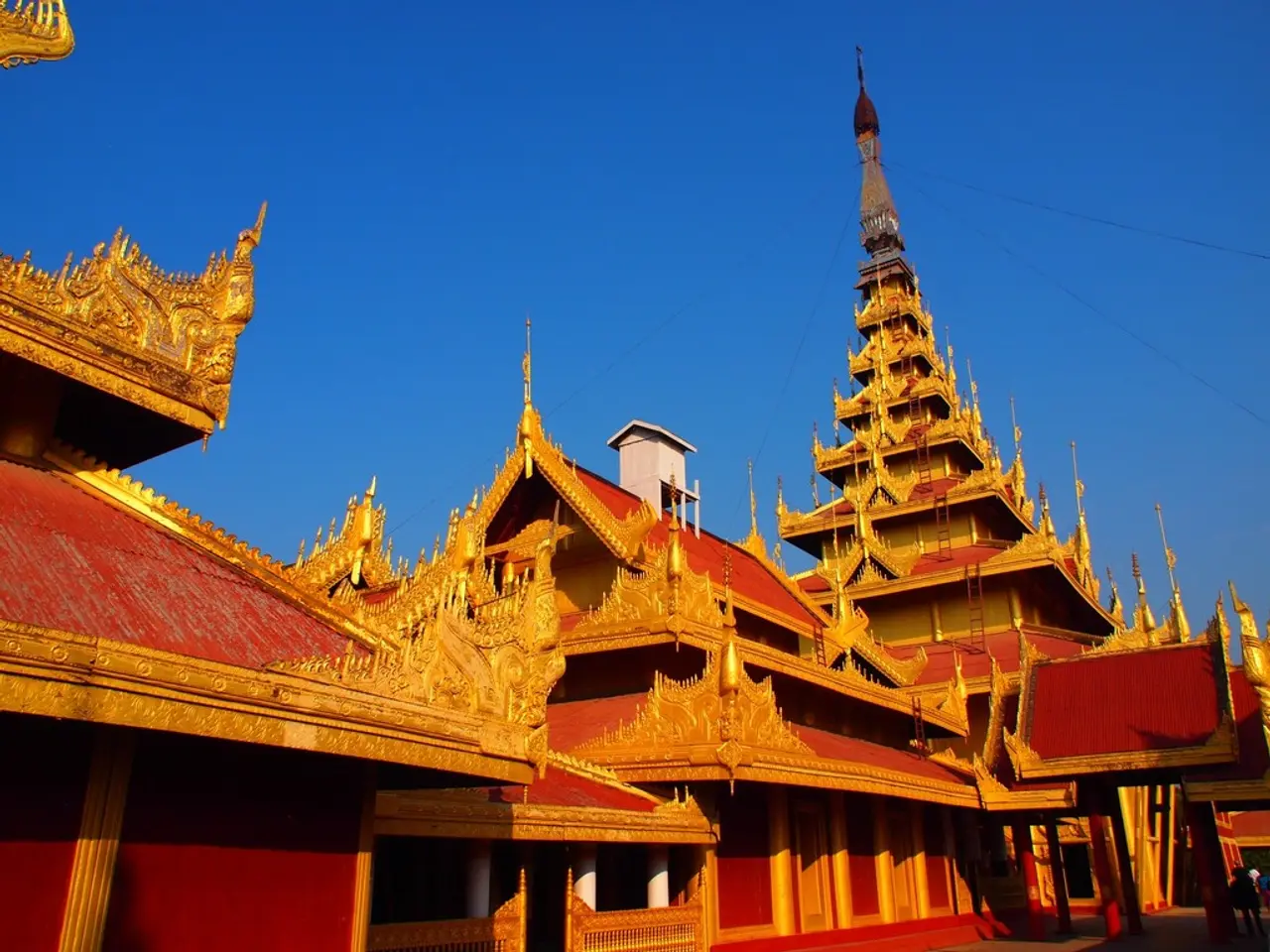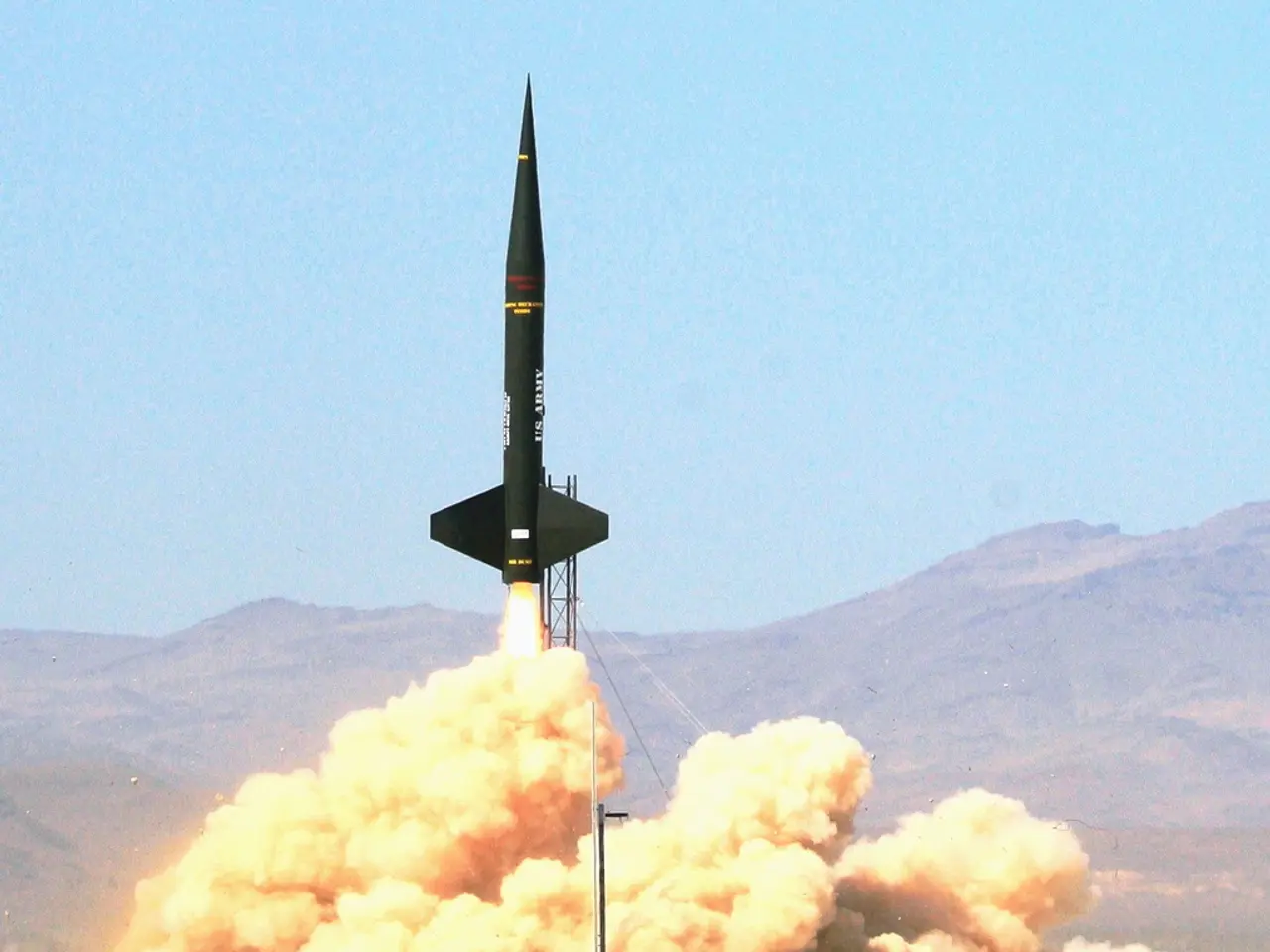Authoritarian regime forges links with the United States through bridge construction
U.S.-Myanmar Relations Remain Tense Amid Lobbying Efforts
Myanmar's military-led government has taken a step towards improving relations with the United States by hiring a Washington lobbying firm, DCI Group, in July 2025. The contract, aimed at rebuilding ties and focusing on trade, natural resources, and humanitarian aid, was signed on July 31, 2022 [1].
This move comes after a tumultuous period for Myanmar, following the military coup in 2021, which ousted the civilian government led by Nobel laureate Aung San Suu Kyi, and was met with widespread international condemnation [2]. Since then, Myanmar has been engulfed in civil war, claiming at least 7,000 lives [3].
The military junta, led by General Min Aung Hlaing, retained control over the country's power structure even after the transfer of power to civilians [1]. The U.S., along with the EU and several Western countries, imposed sanctions on the Myanmar junta in response to the human rights abuses, including the Rohingya crisis [4].
Despite Myanmar's efforts to engage with the U.S., longstanding U.S. sanctions and travel bans against Myanmar's military leadership and certain entities remain in place [1]. The U.S. government has not indicated any immediate lifting of sanctions, and there is uncertainty about whether U.S. sanctions laws will allow payments to the lobbying firm representing Myanmar's military-led government [1].
The U.S. has expressed concern over the treatment of Rohingya representatives in Myanmar, labelling it as genocide and a crime against humanity [5]. In response, the U.S. president announced new tariffs on exports from Myanmar, effective from August 1, increasing to 40% [6].
However, the White House administration has shown a lack of concern for human rights issues compared to its previous leadership [7]. The White House wants to stop funding almost two dozen programs that investigate military crimes and hold them accountable worldwide, including work to hold Myanmar's army accountable for crimes against the Rohingya [8].
The political situation in Myanmar remains volatile, with the military junta still holding major power and ongoing conflict affecting large parts of the country [3]. The US is exploring options to hinder China from purchasing Myanmar's rare earth minerals, potentially redirecting those supplies to the U.S. [9]. Most of Myanmar's rare earth metal deposits are located in areas controlled by the Kachin Independence Army, an ethnic group fighting against the junta [10].
In summary, Myanmar's attempt to improve relations via lobbying is a recent development but has yet to translate into significant changes in U.S. policy or sanctions relief. U.S. concerns over governance, human rights, and security risks continue to dominate the bilateral relationship, limiting progress despite the overture to engage on trade, natural resources, and humanitarian aid [1][2].
References: 1. BBC News 2. Reuters 3. Al Jazeera 4. CNN 5. CBS News 6. The White House 7. The Diplomat 8. The Hill 9. Nikkei Asia 10. The Irrawaddy
- The policy-and-legislation surrounding war-and-conflicts, such as the sanctions against Myanmar's military junta, continue to be a significant obstacle in the improvement of U.S.-Myanmar relations.
- In the general-news, it's been reported that the U.S. politics have shifted on the issue of holding Myanmar's army accountable for crimes against the Rohingya, with a potential reduction in funding for programs investigating military crimes.
- Amid the turbulent politics in Myanmar, Crime-and-justice concerns, like the ongoing human rights abuses and the labeling of the treatment of Rohingya representatives as genocide, persist as a contentious topic in U.S.-Myanmar relations.








